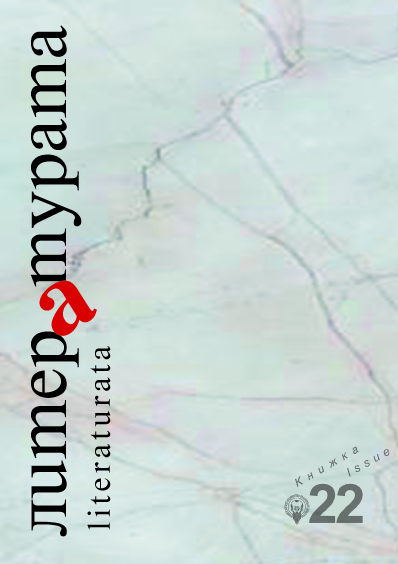The Canon in the New Millennium

Contents
Longxi Zhang. Canon and World Literature (Transl. from Englishby Ruzha Muskurova) / 9
Alastair Fowler. Genre and the Literary Canon (Transl. from Englishby Georgi Georgiev) / 21
Tadeusz Szczerbowski. The Literary Canon as a Temporary Resultof Intentional Play (Transl. from Russianby Rumyana Evtimova / 58
Dylan Suher. “... my Understanding of the Essence of LiteraryAnalysis Stems from... the Desire to Build a Communityand Follow an Ethic Goal”(An Interview with David Damrosch) (Transl. from Englishby Ruzha Muskurova) / 69
Ivan Ivanov. Wars for the Literary Canon in the Cultural Dynamicsof the New Century / 85
Criticism between Marginality and Topicality. Conversation Heldon November 15, 2018, Sofia University“St. Kliment Ohridski” / 109
Vera Kaplická Yakimova. The Literary Canon – Lost and Foundin Translation / 134
Venceslav Sholce. Labyrinths of Normativity: the Problematic Rhetoricof “Dr. Krastev as a Literary Critic” by Simeon Radev / 151
Cvetan Rakiovski. Universalism as Conformism in the Poetryof Dimitar Panteleev / 176
Evdokiya Borisova. Architectural Canon and Literary Canonor the War for a Fountain / 195
Debuts
Elena Yonina. The Silence in Yordan Yovkov’s Work / 221
Zdravko Lovchaliev. Via the Fictional World of Jordan Jovkov and George Raichev – Discrepancies and Resemblances. The Dimensions of Sin – Intertextual Analysis between the Short Story “Albena” and the Long Short Story “Sin” / 232
Reviews
Katya Staneva. Rootage: Literary History and Genre Theory / 252
Kristina Koleva. A Look at the Literature from a Medical Point of View / 258
For the Authors / 265
Requirements for Publications in the Journal “Literaturata” / 277
